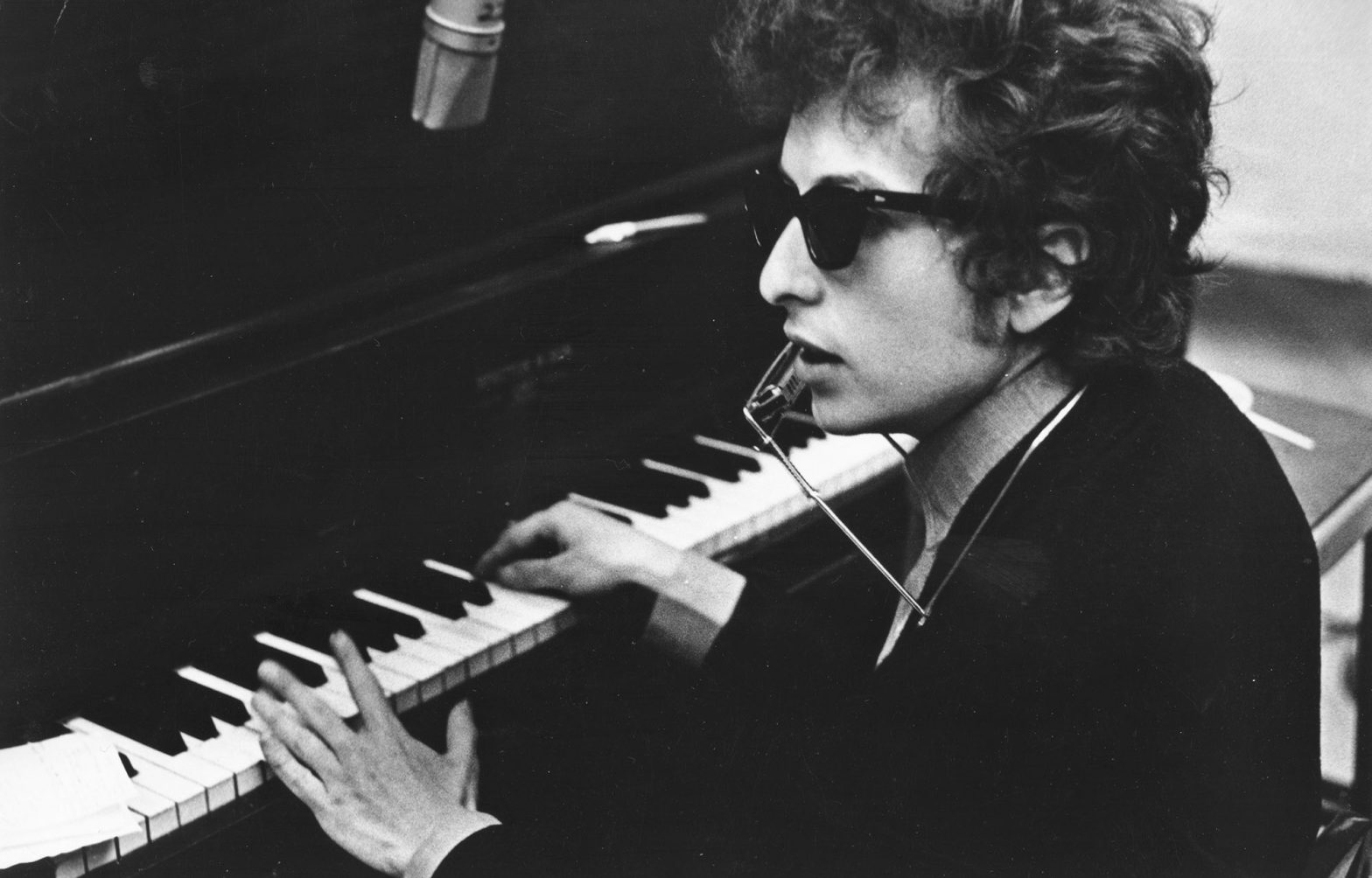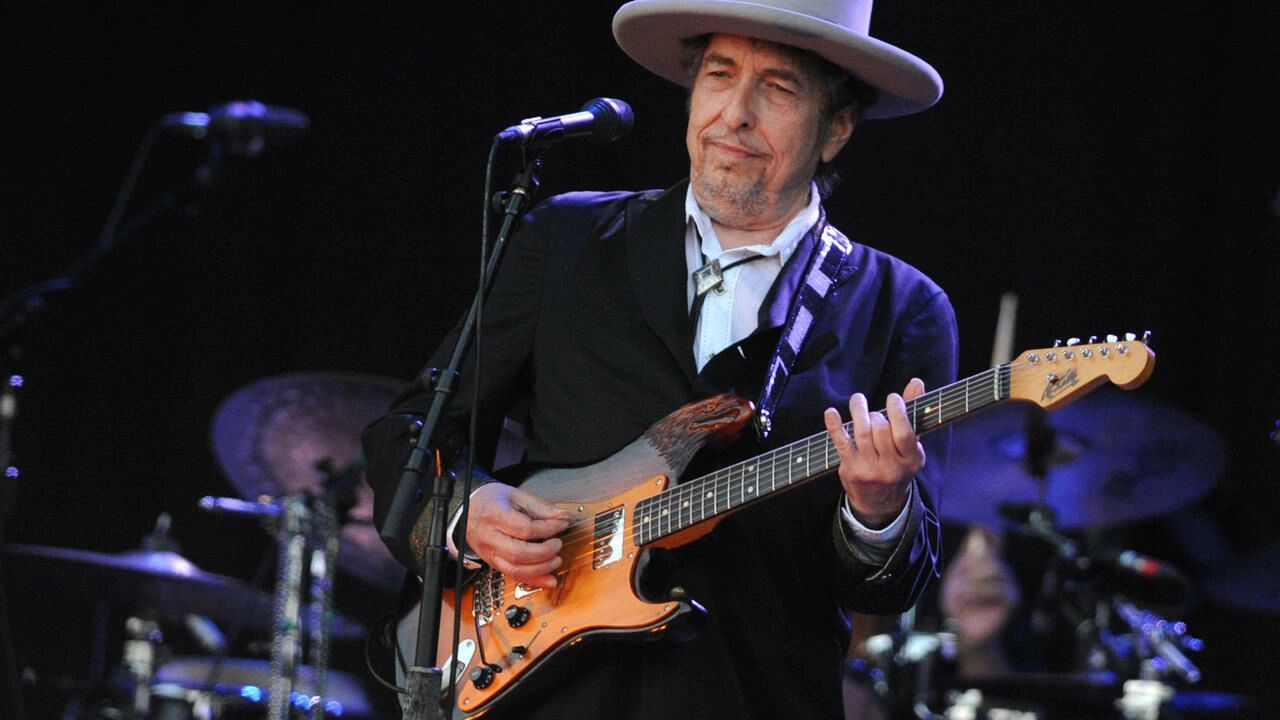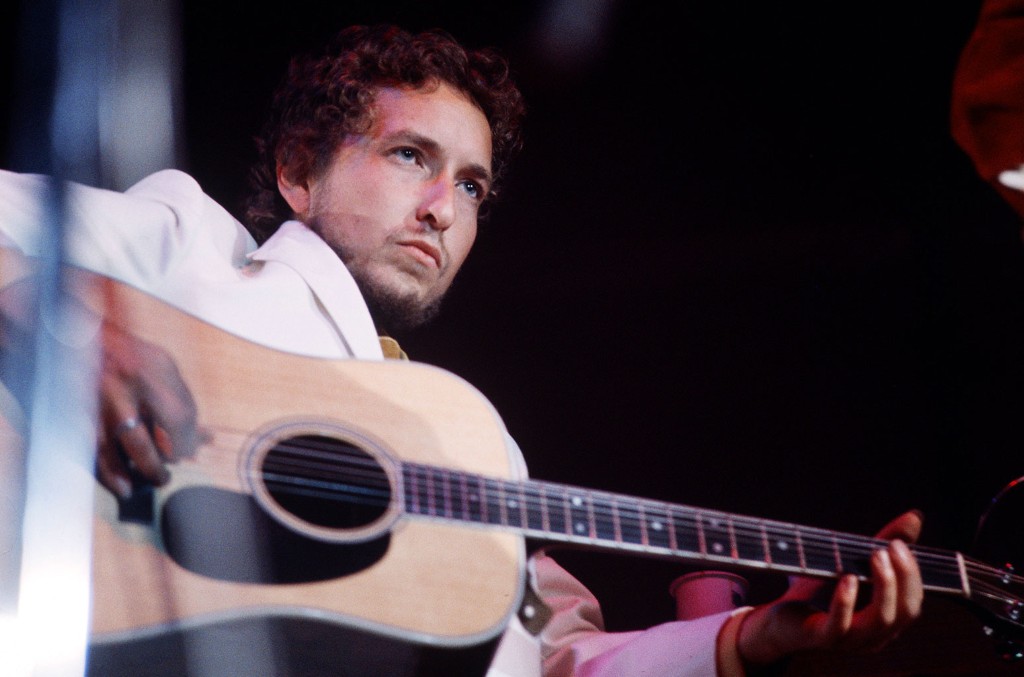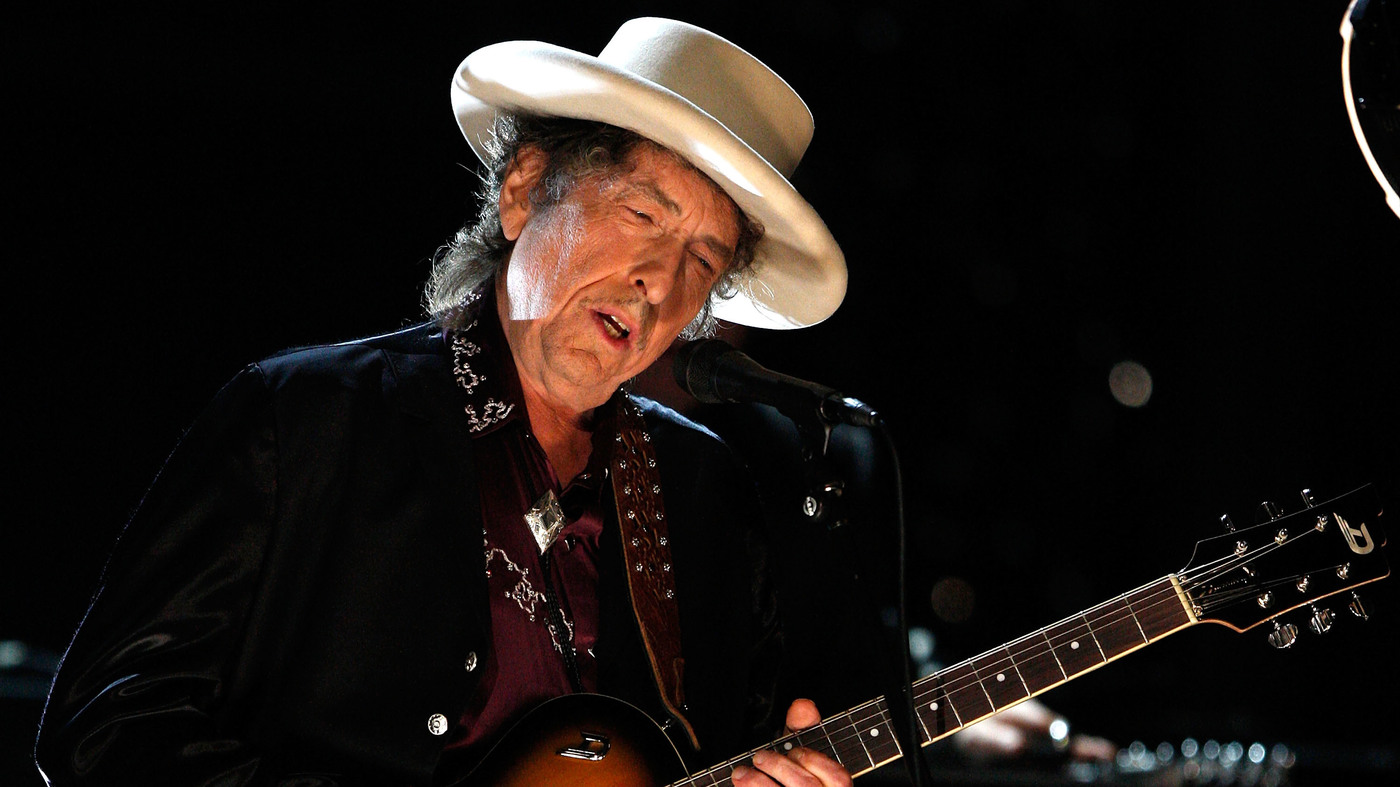
All images courtesy of Getty Images

By Andrew Daly
[email protected]

Many years ago, Bob Dylan once opined, “There is nothing so stable as change.” If anyone would know, it would be Bob Dylan. During the 1960s Dylan was part of a new wave of music that swept across a nation on the precipice of a storm. New music that would be the soundtrack to a new movement. Music and melody that would carry powerful social messages of both love and anger. Dylan’s dueling contexts of peace and protest would come to shape Folk music for an entire generation and all those that would follow. It could be said that we are merely players in Bob Dylan’s ongoing commentary on social justice and race relations. A Commentary that Dylan has woven like a tapestry over decades of unrest, with it all coming to its final arc now.
Bob Dylan has always been something of an enigma in that he perpetually hops in and out of the limelight that he both adores and abhors. The greatest example would be from just a few short years ago when Dylan was awarded the Nobel Prize for Literature, and while he was grateful for the ‘honor’, he also couldn’t be bothered to show up and actually accept the award. Some call him arrogant and over-entitled. Others laud him for overtly shoving his middle finger in the face of the system, and quietly whispering “fuck you.” While Dylan never explicitly stated he was doing so, anyone that has followed Bob Dylan’s 60-year career knows his reputation for protest. His intent goes without saying.
During the 1960s, Bob Dylan was deeply involved in the Civil Rights Movement. His long and complex interest in politics and social justice has more or less been the characteristic that has defined his music. While I would say that all 39 of Bob Dylan’s studio efforts are at the very least good, his greatest efforts usually tend to show themselves during times of social and political upheaval. With that being said, his new album, aptly titled Rough and Rowdy Ways is no different.
Given the amount of blood and tears shed during the Civil Rights Movements of the 1960s one would think that by 2020 we would have gotten our act together when it comes to treating each other right. Not so much. It seems Bob Dylan has taken notice, and he is as cantankerous and biting as ever over it. First of all, know this – this is not the Bob Dylan of 1965. This isn’t even the Bob Dylan of 1985. So, if you’re tuning in for this one, expecting to hear beautiful melodies – think again. No, this is an album for the die-hards. This is an album for people that understand and respect the legend. This is an album for people who understand that when this man speaks, we must not only listen, we must learn.

As Dylan utters the first lyrics of the opening track “I Contain Multitudes” we hear the 79-year-old Dylan’s voice crack across our speakers. Salt-stained, gravel-filled, tattered vocals scratching out, “Today and tomorrow and yesterday too. The flowers are dyin’ like all things do.” From the very start we know for certain that Dylan has hatched an album that seeks to sort through the grim times we find ourselves in. True to form Dylan does so with cutting lyrical imagery coupled with conviction-soaked gallows-humor.
This sort of new-age Civil Rights Movement we find ourselves embroiled in certainly presents something of a moving target for Dylan, and still, he navigates it with the ease and precision of an old ship captain guiding his vessel through a Nor’easter. The music itself is classic Dylan, acoustic, bluesy, and roots riddled, with the lyrics shifting through open narratives and across ever-changing perspectives. The songs themselves require a certain amount of patience, and they reek of secluded late nights spent ruminating over the ever-raging blizzard of hate and media-driven stupidity we seem to have created. Dylan is not forcefully stuck there though. No, it seems he has chosen to lodge himself in the very cultural pantheon that helped create. Dylan is neither withdrawn or assertive on Rough and Rowdy Ways. While not a beaten man, the album at times plays as if Dylan is a man who has been there and done that. He’s not complacent, but the overall feeling is he is not in the least bit surprised that we have fucked it up again, and he’s quietly angry about it. In short – he’s tired of this shit.

As ‘False Prophet’ begins, Dylan makes his feelings plainly known, “Another day that don’t end. Another ship goin’ out. Another day of anger, bitterness, and doubt. I know how it happened. I saw it begin. I opened my heart to the world and the world came in.” Throughout the album, we find Dylan in a sardonically morbid state. As ‘Black Rider’ slowly churns along, we bear witness to the fragility of the human condition. These are the words of a man who knows he is in the stretch run of life. He can feel death breathing down his neck. As the song progresses, we hear Dylan addressing an unknown force or figure – death. True to classic form, Dylan does so with both sympathy and aggression. The wonderful triumph is that instead of laying down in his coffin, Dylan instead chooses to spew an acidic ‘fuck you’ directly in the Grim Reapers face, “Don’t turn on the charm. I’ll take a sword and hack off your arm.” It’s classic Dylan. It’s almost chilling to hear the music pause each time Dylan takes a breath. Listening to this, one tends to wonder, is Dylan thinking on his own mortality? Or the mortality of us as a collective?
Over the decades, Bob Dylan has seen and sung on just about every important topic of the last half-century. We find ourselves as a nation collapsing unto itself, and directly into a great divide. It’s a chasm of our own doing. Our blatant refusal to be kind and decent to one another is coming to a head now. What happens next is in our hands. The weight of it is bore across our shoulders. We have a choice to be bridge builders or to remain in a self-imposed social free fall. It’s true that not all of us can “change the world.” So, what can we do? All of us can be kind, and decent on a daily basis. It starts there. I find it incredibly appropriate that the poet laureate of our time, Bob Dylan, has chosen to release his album now. For that reason, I believe Rough and Rowdy Ways is the album to define this struggle. It had to be Dylan. Who better? Bob Dylan is a seminal voice and a generational talent. There will never be another like him. After all, he has been through, at 79 years of age, Bob Dylan still has something to say. He refuses to settle down. He refuses to be just an “elder statesman.” Bob Dylan is still fighting with the strength and ferocity of man 50 years his junior, and for that reason alone, when he speaks, we must listen.
– Andrew Daly (@vwmusicrocks) is the Editor-in-Chief for www.vwmusicrocks.com and may be reached at [email protected]
